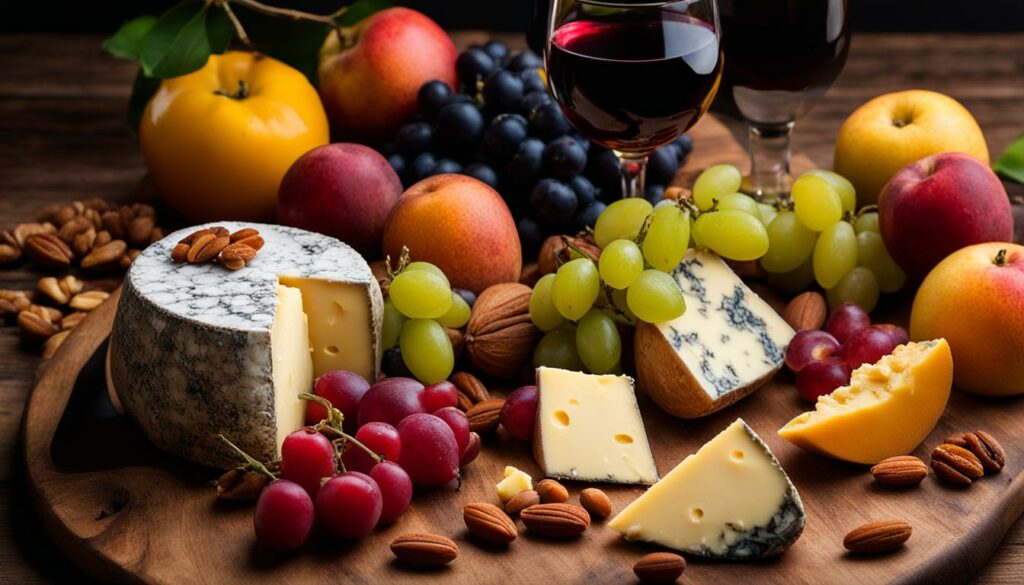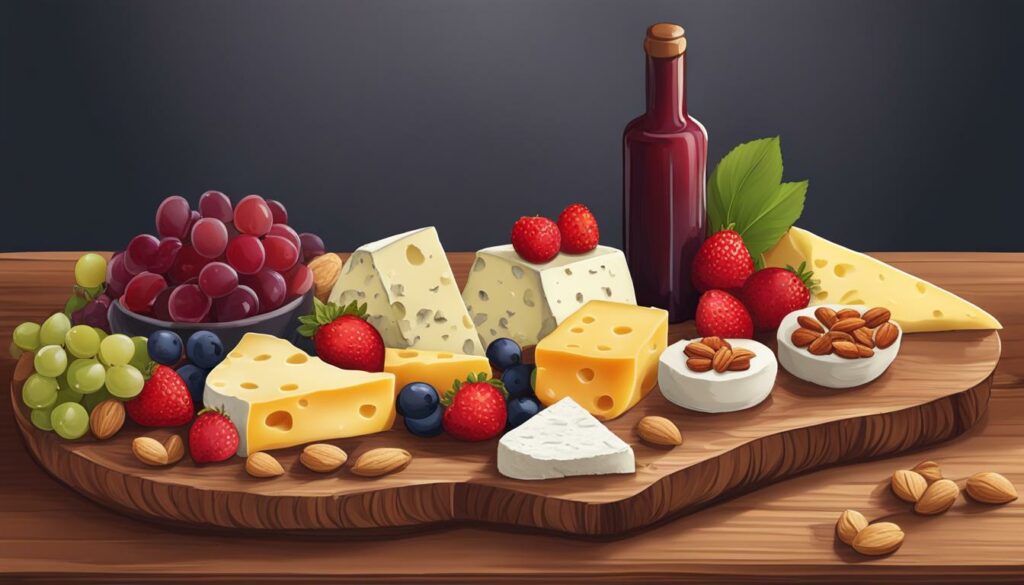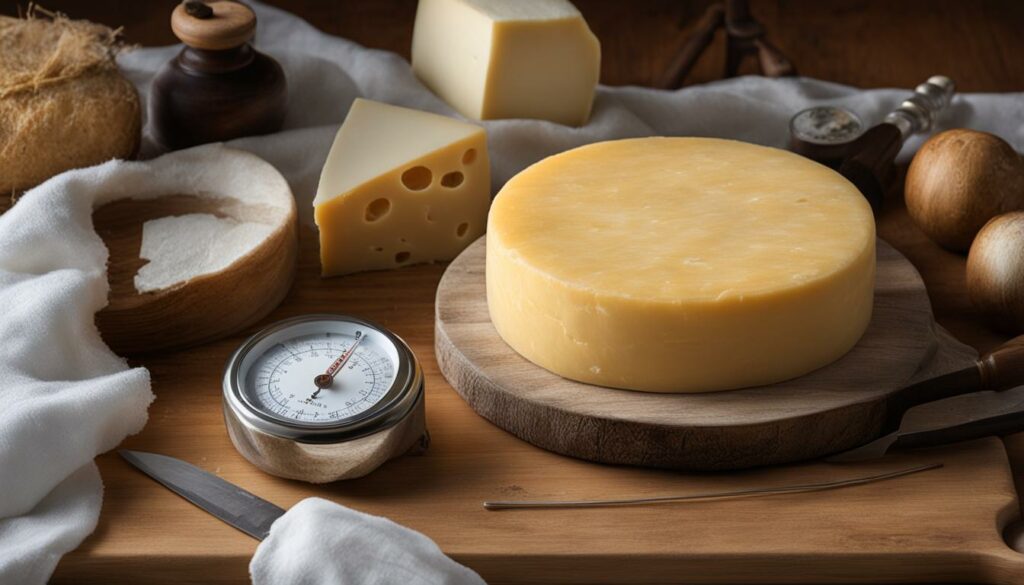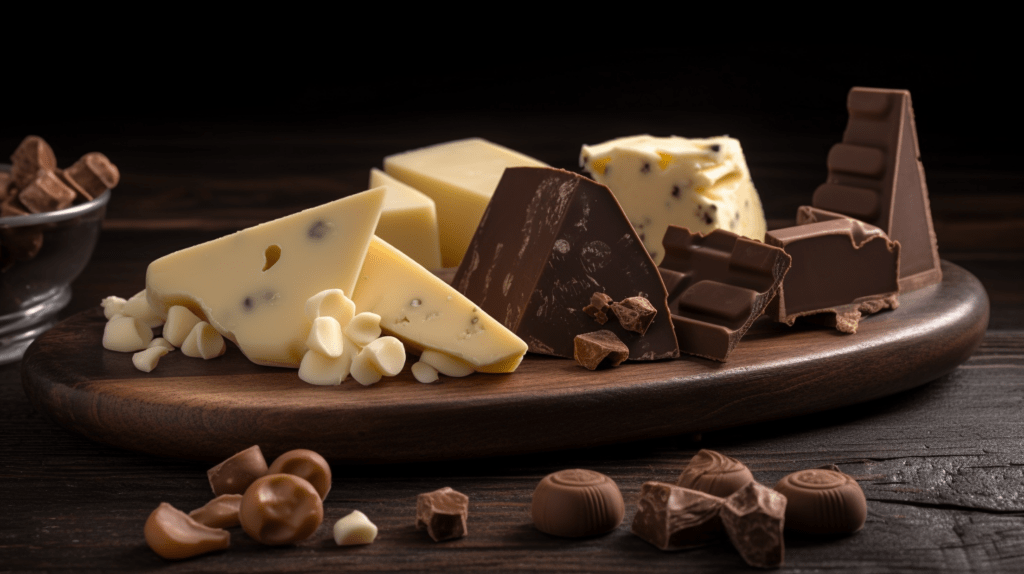Welcome to the world of Mettowee cheese, where artistry and flavor converge to create a truly exceptional cheese experience. Crafted in the verdant hills of Vermont, Mettowee cheese is a shining example of artisanal cheese-making at its finest. Made from raw milk by small-scale farmers and passionate artisans, this cheese embodies the rich tradition of farmhouse cheese, with a flavor profile that is truly unparalleled.
What sets Mettowee cheese apart is not only its exquisite taste but also the unwavering dedication to quality and craftsmanship. Despite regulations surrounding pasteurization, the cheese-makers behind Mettowee believe that using raw milk is necessary to preserve the distinct flavors that define their cheese. It’s a bold stance that sparks a conversation about the politics and ethics of cheese production, highlighting the clash between government regulations and the desire for artisanal freedom.
When you delve into the world of Mettowee cheese, you embark on a journey of complex flavors, cultural significance, and culinary innovation. It’s an experience that combines tradition with the spirit of exploration, offering a taste of Vermont’s agricultural heritage in every bite. Whether you’re a seasoned cheese aficionado or a curious food enthusiast, Mettowee cheese promises to captivate your senses and redefine your perception of artisan cheese.
Join us as we delve deeper into the controversy surrounding pasteurization, explore the adaptability of cheese-makers within regulations, and celebrate the rise of the American artisanal cheese-making movement. Along the way, we’ll introduce you to the local heroes behind Mettowee cheese and discover the vibrant stories that make this cheese truly exceptional. Let’s savor the flavors, unravel the mysteries, and experience the magic of Mettowee cheese together.
Stay tuned for our upcoming sections as we explore the controversy over pasteurization, the evolving landscape of cheese-making regulations, and the innovative spirit that drives the rise of artisanal cheese-making in America.
The Controversy over Pasteurization
The central dispute surrounding artisanal cheese-making in the United States revolves around pasteurization. While unpasteurized dairy products can pose health risks, many artisanal cheese-makers argue that their meticulous cleaning practices ensure the safety of their unpasteurized cheeses. They believe that heating the milk during pasteurization strips away the nuanced flavors that make cheese interesting. Unlike famous cheese-making countries like France, the United States requires either the heating of milk or the aging of cheese to ensure safety. This disagreement highlights the tension between public safety and the desire for individual freedom in the cheese-making community.
Artisanal cheese-makers pride themselves on their dedication to preserving the traditional methods of cheese-making, which often involve using unpasteurized milk. They argue that the natural enzymes and microorganisms present in raw milk contribute to the complex flavors and textures of their cheese. By avoiding pasteurization, they believe they can craft cheeses that are truly unique and representative of their craft.
However, opponents of unpasteurized cheese argue that the potential health risks associated with consuming raw milk outweigh the benefits of its taste. Pasteurization is a process that involves heating the milk to kill harmful bacteria, making it safer for consumption. By not pasteurizing their cheese, artisanal cheese-makers are taking a risk with food safety.
To shed light on this ongoing debate between artisanal cheese-makers and regulators concerned with food safety, it is important to consider the varying perceptions of risk and the potential consequences. While some argue that the artisanal cheese-making tradition should be upheld and celebrated, ensuring that consumers have access to a wide variety of unique and flavorful cheeses, others underline the importance of strict regulations to protect public health.
The disagreement over pasteurization raises broader questions about the balance between preserving food traditions, supporting artisanal practices, and ensuring food safety in the modern world. Is it possible to find a compromise that allows for both the preservation of artisanal cheese-making techniques and the guarantee of food safety?
The Risks and Benefits of Unpasteurized Cheese
Proponents of unpasteurized cheese argue that the unique flavors and textures achieved through traditional cheese-making methods are undeniable. They believe that the natural bacteria present in raw milk contribute to the development of complex flavors and distinct characteristics in the cheese.
However, opponents of unpasteurized cheese emphasize the potential health risks associated with consuming products made from raw milk. These risks include the presence of harmful bacteria such as Listeria, Salmonella, and E. coli, which can cause serious illnesses, particularly in vulnerable populations such as pregnant women, young children, and the elderly.
While unpasteurized cheese can be produced safely through rigorous sanitation practices, it requires careful monitoring throughout the entire production process. The challenge lies in ensuring that cheese-makers adhere to these stringent standards consistently.
“The ongoing debate over pasteurization highlights the need for a thoughtful and nuanced approach to food safety regulations. While it is essential to protect public health, we must also consider the cultural and gustatory significance of artisanal cheese-making.”
By understanding the perspectives of both sides and considering scientific evidence and expert opinions, we can begin to navigate through this controversy and find a solution that respects both the art of cheese-making and the need for food safety.
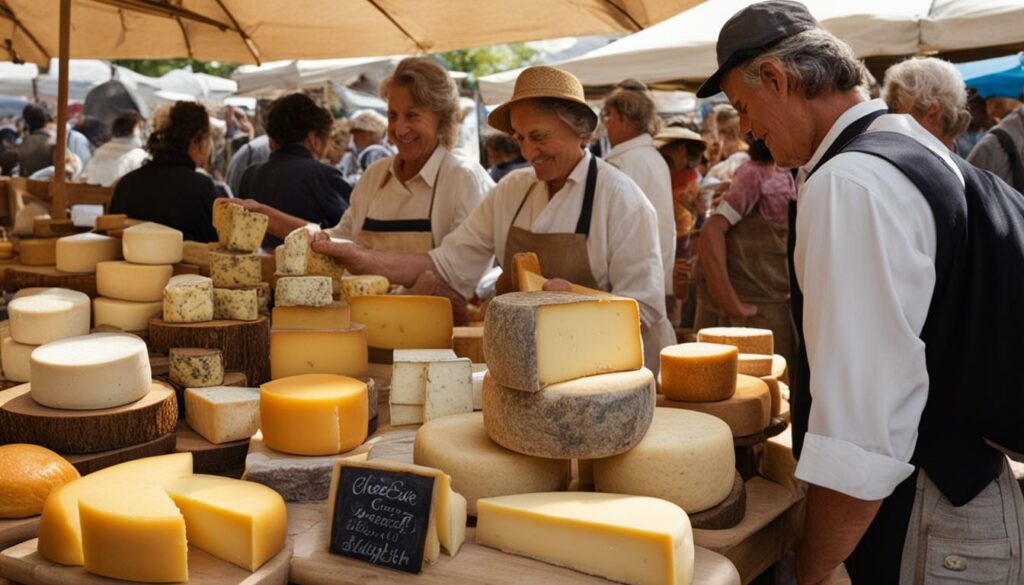
| Pasteurized Cheese | Unpasteurized Cheese |
|---|---|
| Mandatory heating process to kill harmful bacteria | Voluntary avoidance of pasteurization to preserve flavors |
| Wider availability due to adherence to safety regulations | Restricted distribution due to regulations against raw milk products |
| Consistency in taste and texture | Variety in flavors due to unique microbial composition |
| Longer shelf life | Shorter shelf life due to natural enzymes and microbes |
Adapting to Regulations
In order to comply with government regulations, cheese-makers have demonstrated their adaptability and resilience by refining their craft within the existing rules. They have found innovative ways to produce high-quality, artisanal cheeses while adhering to safety standards.
One approach taken by cheese-makers is the development of their own unique styles of cheese that meet regulatory requirements while still offering distinctive flavors and textures. By utilizing their expertise and creativity, they have successfully navigated the fine line between compliance and maintaining the essence of artisanal cheese-making.
Furthermore, many cheese-makers have been inspired to join the local-food movement, which emphasizes the importance of sourcing and supporting regional produce. By aligning with this movement, cheese-makers not only contribute to the growth of the local economy but also improve the availability and accessibility of their cheese to consumers.
The local-food movement provides a platform for cheese-makers to showcase their artisanal innovation and connect with an audience that appreciates the craftsmanship behind their products. Additionally, it allows them to build relationships with local farmers, fostering a sense of community and sustainability within the industry.
Benefits of Joining the Local-Food Movement for Cheese-makers:
- Improved market access for their artisanal cheeses
- Opportunities for collaborations with local farmers and producers
- Increased consumer awareness and appreciation of their craft
- Support for regional economic development and sustainability
By adapting to regulations and embracing the local-food movement, cheese-makers have demonstrated their commitment to both craftsmanship and compliance. Their ability to innovate within the constraints of the regulatory framework has propelled the artisanal cheese-making industry forward and contributed to the broader sustainable food movement.
| Benefits of Adapting to Regulations | Benefits of Joining the Local-Food Movement |
|---|---|
| Compliance with safety standards | Improved market access |
| Preservation of artisanal cheese-making techniques | Opportunities for collaborations |
| Development of unique cheese styles | Increased consumer awareness |
| Continued growth and sustainability | Support for regional economic development |
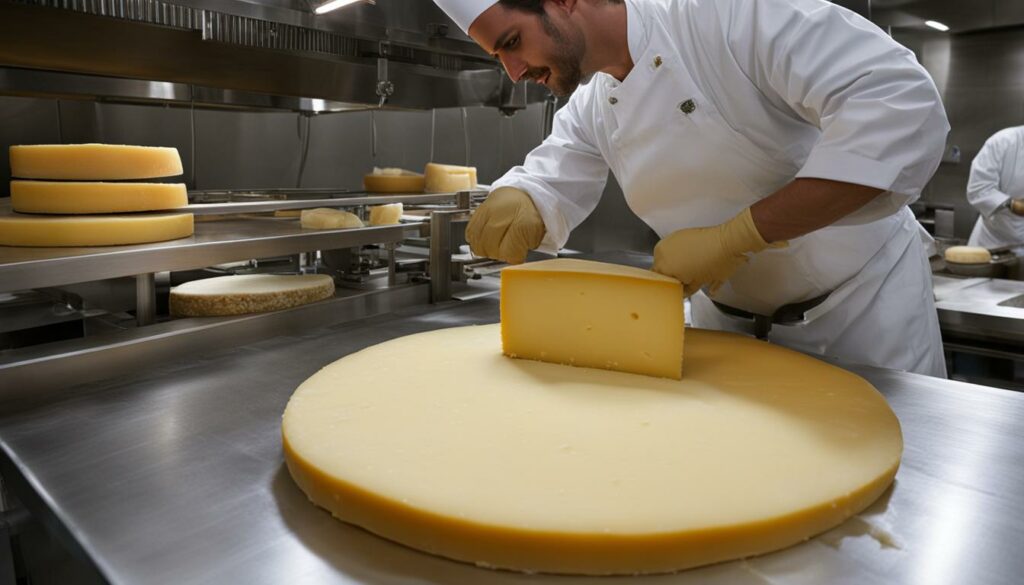
The Rise of Artisanal Cheese-making in America
Artisanal cheese-making in America has experienced a remarkable surge in popularity in recent years. From coast to coast, a growing number of creameries are dedicated to producing high-quality and unique artisanal cheeses. In fact, between 2000 and 2007, the number of these creameries doubled, showcasing the increasing demand for handcrafted cheeses that capture the essence of American tradition and innovation.
Unlike countries with long-established artisanal cheese-making traditions, the United States provides cheese-makers with the freedom to experiment and push the boundaries of what is possible in the world of cheese. This spirit of innovation has led to the creation of cheeses that are distinct and unparalleled, offering flavors and textures that cannot be found in their European counterparts.
The tradition of artisanal cheese-making in America is characterized by rebellion, adaptation, and a relentless pursuit of excellence. In the face of challenges and regulations, American cheese-makers have remained resilient and embraced their craft with a sense of ingenuity and creativity. They have taken traditional techniques and adapted them to suit local resources and preferences, resulting in a diverse array of flavors and styles that reflect the regional terroir.
Inspired by a deep-rooted passion for their craft and a commitment to preserving the integrity of American tradition, cheese-makers have transformed the landscape of artisanal cheese-making in the United States. They have redefined what it means to craft exceptional cheeses, elevating the artistry and craftsmanship of their creations to new heights.
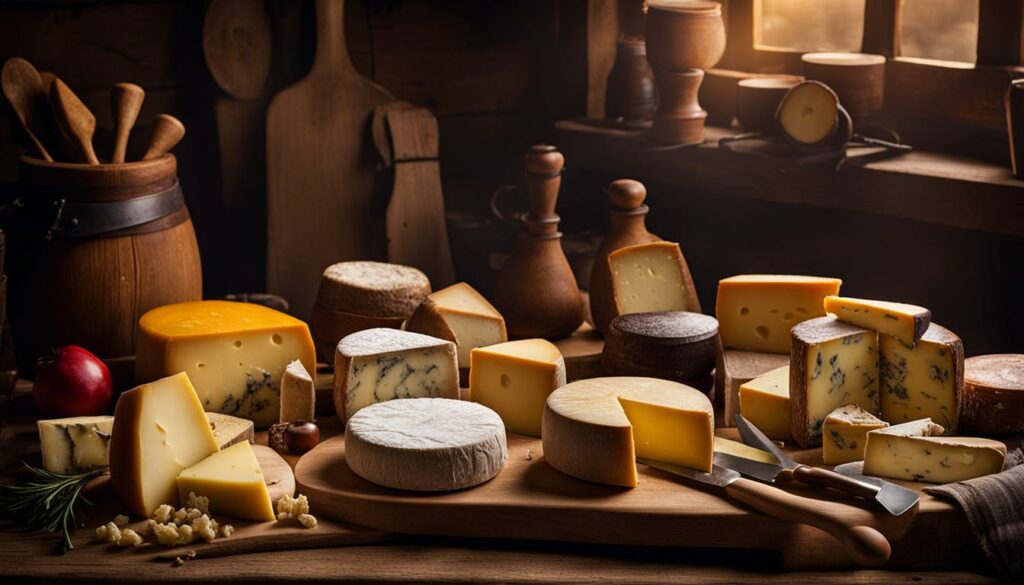
Through their dedication and unwavering pursuit of excellence, American cheese-makers have firmly established artisanal cheese-making as an integral part of the nation’s culinary heritage. Their commitment to handcrafted cheeses reflects not only a profound respect for tradition, but also a desire to continuously explore and innovate, pushing the boundaries of what is possible in the world of cheese.
The rise of artisanal cheese-making in America is a testament to the creativity, resilience, and passion of cheese-makers who have carved a distinctive space for themselves in the global cheese industry. With each delectable bite, artisanal cheeses tell a story of tradition, innovation, and the unique flavors that define the American cheese-making landscape.
Conclusion
Mettowee cheese exemplifies the artistry and innovation of the American artisanal cheese-making movement. Despite ongoing debates surrounding pasteurization and government regulations, cheese-makers persist in the production of award-winning cheeses that beautifully capture the essence of Vermont’s agricultural landscape. Through the creative application of traditional methods, adherence to rigorous safety standards, and collaboration within the local-food movement, cheese-makers have successfully adapted and flourished.
The captivating flavors and textures of Mettowee cheese stand as a testament to the unwavering dedication and passion of these artisans. By prioritizing quality and taste, they have crafted exceptional cheeses that have garnered acclaim and introduced consumers to a remarkable culinary experience. Every bite of Mettowee cheese tells a story, reflecting the rich heritage of Vermont’s cheese-making tradition.
As the artisanal cheese-making scene continues to evolve in America, it embraces rebellion, adaptation, and innovation. Cheese-makers exercise their creative freedom to experiment and push boundaries, resulting in unique flavors and styles that are distinctively American. This vibrant cheese-making tradition paves the way for an exciting future, where the potential for new and remarkable cheeses remains endless.
FAQ
Is Mettowee cheese made with raw milk?
Yes, Mettowee cheese is crafted using raw milk, which gives it a unique flavor.
What makes Mettowee cheese considered a farmhouse cheese?
Mettowee cheese is made by small-scale farmers and artisans in Vermont, following traditional methods of cheese-making.
Is Mettowee cheese aged?
Yes, Mettowee cheese is aged to enhance its flavor and develop its characteristic taste profile.
Has Mettowee cheese won any awards?
Yes, Mettowee cheese has received recognition and awards for its exceptional quality and taste.
Is Mettowee cheese considered an artisan cheese?
Yes, Mettowee cheese falls under the category of artisan cheese as it is handcrafted by skilled cheese-makers.
What makes Mettowee cheese different from other Vermont cheeses?
Mettowee cheese stands out for its unique farmhouse flavor and the dedication of the cheese-makers to quality and taste.
How do cheese-makers ensure the safety of Mettowee cheese without pasteurization?
Cheese-makers follow meticulous cleaning practices and believe that the traditional methods they use are safe and essential for preserving the flavor profile of the cheese.
How do cheese-makers comply with government regulations regarding pasteurization?
Some cheese-makers have focused on refining their craft while adhering to the regulations, developing their own styles of cheese that meet required safety standards.
What is the local-food movement, and how does it relate to cheese-making?
The local-food movement emphasizes the production and distribution of regional food. Some cheese-makers have joined this movement to improve the quality and availability of their cheese while maintaining innovation in their craft.
Has the number of artisanal cheese producers in the United States increased?
Yes, there has been a significant growth in the number of creameries dedicated to producing artisanal cheese in recent years, reflecting the increasing popularity of artisanal cheese-making in America.
What sets American artisanal cheese-making apart from European traditions?
American artisanal cheese-making traditions are characterized by rebellion, adaptation, and innovation, allowing cheese-makers to create unique cheeses not found in Europe.

